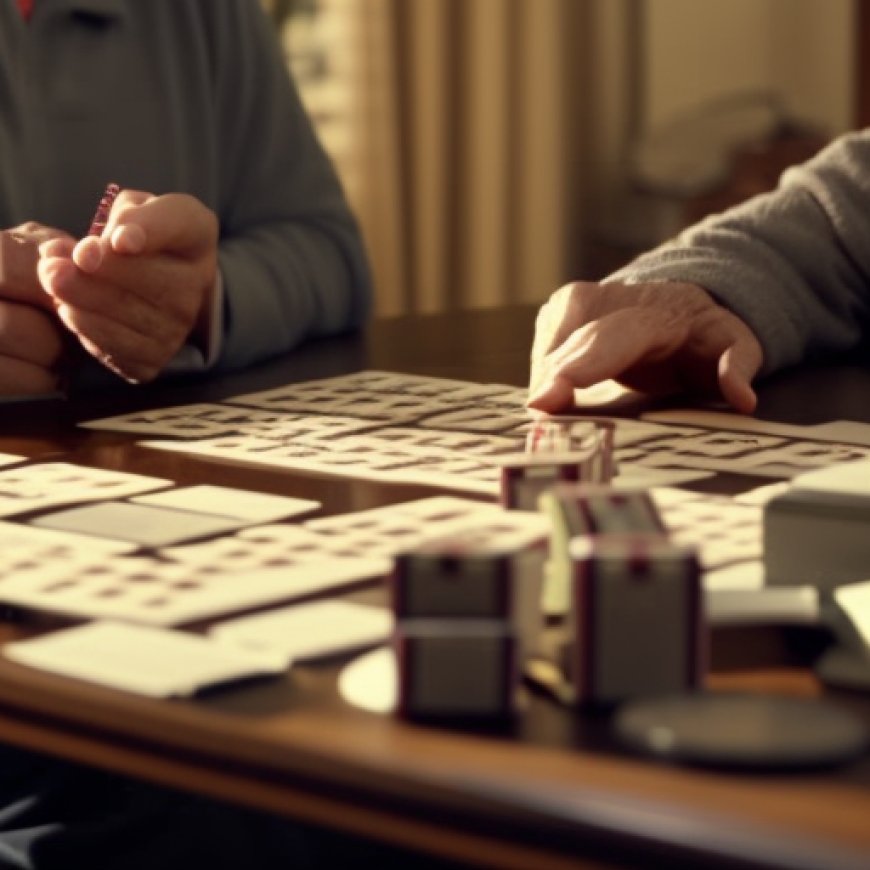Writing, Playing Cards, and Doing Crossword Puzzles Reduce Dementia Risk in Older Adults, Study Finds
Adult Literacy and Activities Reduce Dementia Risk, Study Finds Real Simple


Sustainable Development Goals (SDGs) and Dementia Prevention
Introduction
A decline in cognitive health and functioning is a natural part of getting older, but dementia is a more serious illness categorized by cognitive deterioration “beyond what might be expected from the usual consequences of biological aging,” explains the World Health Organization (WHO). There’s no cure for dementia, but there are lots of things we can do to keep our brains fit and sharp and try to prevent more serious cognitive decline and disease later in life.
Prevention and Risk Reduction
That’s why prevention and risk reduction are a key focus for dementia researchers. A new study in JAMA Network Open found positive evidence that older adults who frequently engage in cognitively stimulating activities and learning tend to have a lower risk for developing dementia, regardless of economic status or education earlier in life.
The Study
The cohort study included over 10,000 relatively healthy men and women in Australia with a median age of 74. It found that frequently engaging in adult literacy activities—such as taking classes, using the computer, and writing—was associated with an 11 percent lower risk of dementia over 10 years. This could include learning a new language, enrolling in adult literacy courses, auditing classes, or taking up a new skill or hobby to promote brain neuroplasticity, boost memory, and strengthen cognitive reserve.
Mental Activities
The findings also showed that active, stimulating mental activities, such as playing games, playing cards, playing chess, and doing crosswords or puzzles—reduced dementia risk by 9 percent. These are not only entertaining, pleasurable, and often social hobbies, but they also activate several cognitive systems: problem-solving, episodic memory, focus and concentration, calculation, spatial skills, and decision-making.
Artistic and Creative Activities
Artistic and creative activities (think: craftwork, woodwork, or metalwork, and painting and drawing), as well as passive, but still-stimulating pursuits like reading, watching TV, and listening to music, were also linked to decreased dementia risk, although to a lesser extent, the authors note.
Socializing and Outings
This particular study did not find socializing and outings to be associated with dementia risk, although social interactions and connections are still believed to be incredibly important to well-being and quality of life, especially in older people.
Brain Games and Apps
There isn’t much scientific evidence to prove that games and apps specifically marketed for brain health or improved memory are particularly effective. But that said, they probably can’t hurt—and the above research suggests that the mere act of stimulating and challenging your brain often plays a large role in maintaining cognitive health. Experts agree, generally speaking, that the best thing you can do for your brain is to use it. Keep your mind engaged and challenged frequently by learning something new every day and staying both mentally and physically active.
SDGs, Targets, and Indicators
1. Which SDGs are addressed or connected to the issues highlighted in the article?
- SDG 3: Good Health and Well-being
2. What specific targets under those SDGs can be identified based on the article’s content?
- Target 3.4: By 2030, reduce by one-third premature mortality from non-communicable diseases through prevention and treatment and promote mental health and well-being.
3. Are there any indicators mentioned or implied in the article that can be used to measure progress towards the identified targets?
- Indicator 3.4.2: Suicide mortality rate
- Indicator 3.4.1: Mortality rate attributed to cardiovascular disease, cancer, diabetes or chronic respiratory disease
The article highlights the importance of cognitive stimulation and engagement in activities to prevent dementia and maintain cognitive health. This aligns with SDG 3: Good Health and Well-being, which aims to promote mental health and well-being for all. Specifically, Target 3.4 focuses on reducing premature mortality from non-communicable diseases through prevention and treatment and promoting mental health and well-being.
The article suggests that engaging in cognitively stimulating activities and learning can lower the risk of developing dementia. This can be linked to Target 3.4, as it emphasizes the importance of prevention and risk reduction for non-communicable diseases like dementia.
The indicators mentioned in the article that can be used to measure progress towards Target 3.4 include the suicide mortality rate (Indicator 3.4.2) and the mortality rate attributed to cardiovascular disease, cancer, diabetes, or chronic respiratory disease (Indicator 3.4.1). These indicators can help assess the effectiveness of interventions and strategies aimed at reducing the risk of dementia and improving cognitive health.
4. Table: SDGs, Targets, and Indicators
| SDGs | Targets | Indicators |
|---|---|---|
| SDG 3: Good Health and Well-being | Target 3.4: By 2030, reduce by one-third premature mortality from non-communicable diseases through prevention and treatment and promote mental health and well-being. | Indicator 3.4.2: Suicide mortality rate Indicator 3.4.1: Mortality rate attributed to cardiovascular disease, cancer, diabetes or chronic respiratory disease |
Behold! This splendid article springs forth from the wellspring of knowledge, shaped by a wondrous proprietary AI technology that delved into a vast ocean of data, illuminating the path towards the Sustainable Development Goals. Remember that all rights are reserved by SDG Investors LLC, empowering us to champion progress together.
Source: realsimple.com

Join us, as fellow seekers of change, on a transformative journey at https://sdgtalks.ai/welcome, where you can become a member and actively contribute to shaping a brighter future.







